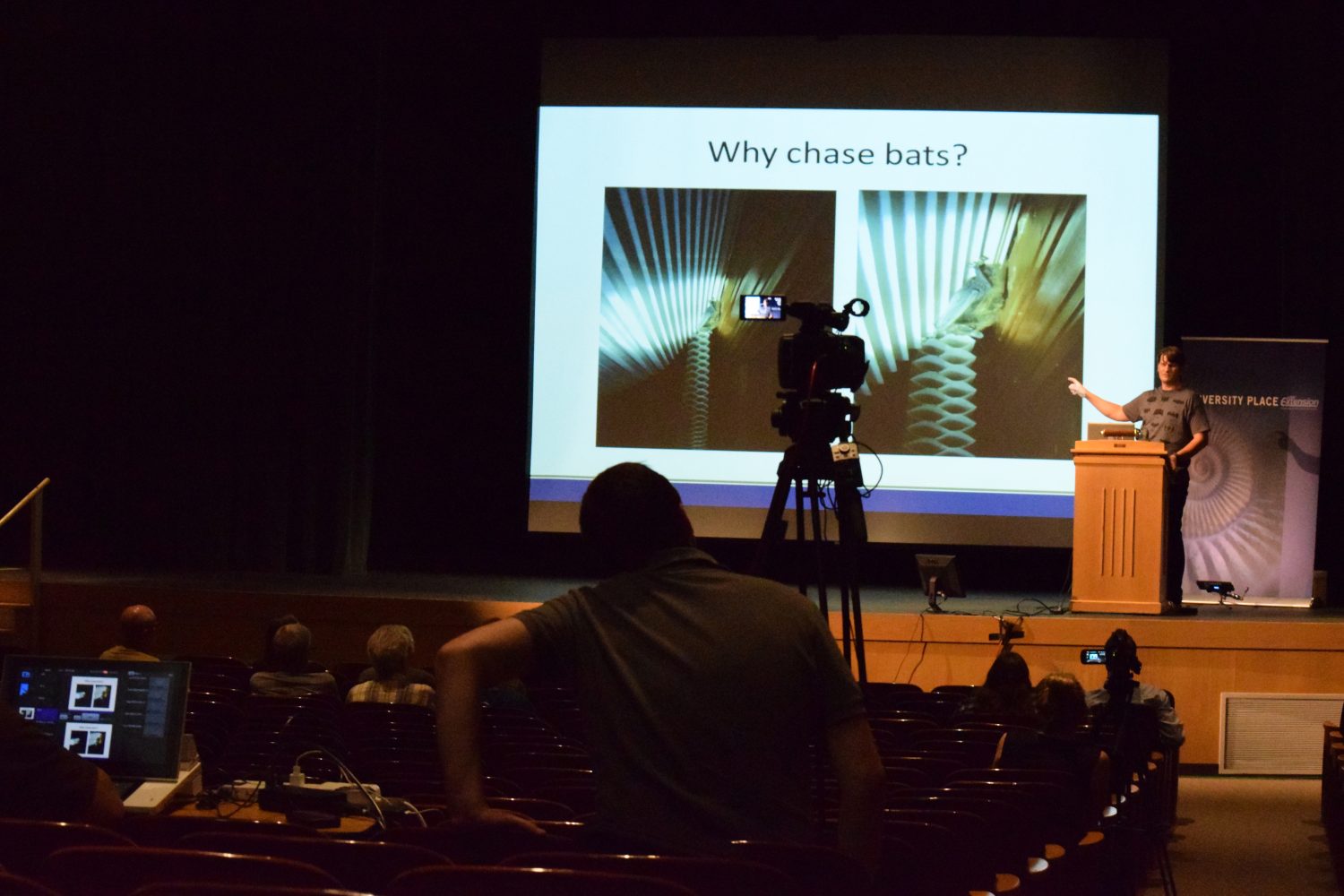Cash crops and “cuddlebugs”

Wisconsin Public Television program features local research programs
By Jared Raney
Reporter
The Northern Lights Tour hit its halfway-point in Rhinelander on Wednesday, with presentations by a UW professor and a local community activist.
The event was another effort by UW-Extension to offer educational opportunities for the community.
“We are very excited to be able to host the event,” said Sara Richie, Family Living Educator with UW Extension. “It does seem to me like they like to reach out and try to reach people outside of Madison, and this is the best way they can do that.”
The night featured two speakers, Jeffrey Endelman, an assistant professor of horticulture at UW-Madison and faculty lead for the UW potato breeding program, and Joel Knutson, the interim Community, Natural Resources and Economic Development Educator with UW-Extension Oneida County, on the Wisconsin Bat Monitoring Program and the benefits of citizen science.
Potato-breeding
“Rhinelander is really at the head of the potato-growing chain,” said Endelman during his presentation. Endelman’s research is hosted in two Rhinelander facilities, both of which are integral to the sustainability of the Wisconsin potato industry.
The importance of Rhinelander at the top of that chain is in its isolation from major potato-producing areas. Because the crop is susceptible to disease, potato farms rely on seed growers who keep the genetic pool clean.
Rhinelander in turn provides so-called “nucleus seeds” to seed-growing areas, such as Antigo, to further protect the longevity of the cash crop.
To see the research first-hand, the Rhinelander Agricultural Center will be opening its doors to the public on Sept. 24 for a Family Day.
Wisconsin Bat Monitoring
Bats, a.k.a. “wonderful little cuddlebugs of the sky,” as Joel Knutson calls them, are well on their way to becoming endangered in Wisconsin due to White Nose Syndrome.
The Wisconsin Bat Monitoring Program, which the Star Journal featured several weeks ago, is an opportunity for citizens to get involved in the effort to protect them.
“Part of our brain is just naturally curious about our natural world,” Knutson said. “This is a way to get people to kind of reconnect.”
The monitoring process is simple, and in recruiting people for the program, Knutson said he just asks ‘how do you feel about taking a pontoon ride around your lake at sunset?’ That’s it.
More information can be found at the Wisconsin Bat Program website.
Leave a reply
You must be logged in to post a comment.






